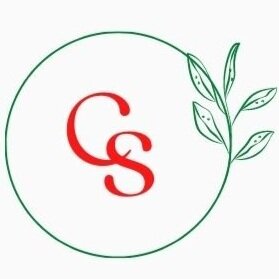Environmental Sustainability Empowerment
Cordelia here, host of PlastiCanada. This month, we are pleased to present a different style of podcast. In introduction to the audio experience that is Episode 2, I am abjectly pleased to share a bit of how my experiences in Newfoundland and Labrador intersect with some amazing individuals at CLEAR, the Civic Laboratory for Environmental Action Research at Memorial University. Special thanks to Kaitlyn Hawkins, Lab Manager at CLEAR for her dedication to these issues, her patience, and her kind support of our educational initiatives!
Read on, and maybe consider: Can you remember the first time you started consciously thinking about the environment? Have you made a more environmentally-conscious decision in your life that you want to tell us about? Stories are the key to connection, and we would love to hear them.
<<>>
Growing up in Cape Breton, Nova Scotia, environmental sustainability was discussed mostly in reference to the Sydney Tar Ponds. I remember in grade school, as early as elementary, we were learning about the Tar Ponds and what that pollution had done to the surrounding environment after 100 years of coking operations. In Junior High, we even had to debate about the very real solutions that were bring proposed for the cleanup of this massive pollution site. I recall that our team won the in-class debate. Hooray Team ‘Solidization & Stabilization’! This introduction to environmental education shaped how I would view our role as a society early on… back then, it seemed that even by learning about these issues we were doing our part! The smelly Tar Ponds streams seemed less intimidating when I knew how they got there, and the years of governmental debate on the best cleanup methods truly took out any individual feeling of responsibility. Surely, only ‘experts and officials’ knew best. They would figure it out… right?
Fast forward to the early days of my undergrad at Memorial University of Newfoundland. I was interested in Biology and Psychology, and further deepened my environmental education while studying and volunteering for various clean-ups and community events. It was there, on the stunning ocean cliffside of the Eastern-most edge of North America, that I had my first experience with a ‘Plastic Forrest’ (something you will hear more about in our second episode, which will be released tomorrow, May 28th). Looking for images of the Plastic Forest for this blog, I came across a 2005 article by the CBC, highlighting the problem long before I had even stepped foot on Newfoundland and Labrador soil. The CBC followed up with this story last year, discussing this particular location and the plastics pollution break-down in Newfoundland and Labrador with Dr. Max Liboiron, Director of the Civic Laboratory for Environmental Action Research (CLEAR) at Memorial University.
I had been introduced to the work at CLEAR through a community event they hosted in Petty Harbour-Maddox Cove, NL years ago. They taught the local attendees not only to be aware of the micro and macro plastics issues in this fishing community and province, but also what THEY can do to be a part of plastic pollution monitoring through a citizen science approach.
This idea was novel to me, and when I learned that CLEAR had a mandate to carry out their goals of monitoring plastic pollution through their use of anti-colonial research methodologies…. I was blown away.
“To change science and research from its colonial, macho, and elitist norms, CLEAR works at the level of protocol. Rather than lead with good intentions, we work to ensure that every step of research and every moment of laboratory life exemplifies our values and commitments.”
This approach to science using a specifically anti-colonialist outlook is fresh, and innovative. It allows different types of conversations to get going under the shared concerns of those who are seeking to thrive on Turtle Island.
We all have a role to play in protecting the environment, but until recently it had felt like there was only one path to finding solutions to environmental sustainability - gain an education, try to volunteer or work hard enough to get a job focused these issues, and you can try to collaborate with others once a part of a ‘system’. For a young woman coming from a small island in Nova Scotia to study in Newfoundland and Labrador, this meant that being a part of scientific change was for the select few who worked hard, got a university education, and perhaps knew somebody.
I know better now.
I have been lucky to have volunteered, interned, and lived in multiple environments and countries to finally get to a point where I recognize that change truly starts with you and me. Change can and will happen through the engagement, education, and the participation of people who want to see a cleaner, healthier, and more sustainable world. That is what PlastiCanada is all about: the people behind the solutions.
With that, we are so excited to share what Kaitlyn Hawkins and others at CLEAR had figured out long ago, and how they’re working hard to put the tools of empowerment in the hands of their communities.
Have a listen to Episode 2, and let us know when you first truly felt empowered to make a more sustainable change in your life! Or, let us know if you’ve participated in a Citizen Science project yourself… We would love to hear your stories!
